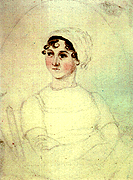One more on men this morning, cuz I just can’t resist. Charles McGrath of the New York Times speculates on what Scott Rudin and Disney are going to do with the movie version of The Dangerous Book for Boys, which they’ve bought the rights to. Writes McGrath,
A report in Variety suggested that the plot of the movie is likely to involve fathers who struggle to balance their instinctive need to protect and their offspring’s craving for adventure, even though the evidence mostly suggests that these days it is the sons who are risk averse, unwilling to unplug themselves from their iPods, and the parents who are eager for their offspring to go outside and have some old-fashioned fun.
Anyone got other ideas for Disney and Rudin? Who should star? And while we’re on the subject of sneak peaks, of course, don’t forget to preorder your copy of the Daring Book for Girls, which, in an amazing act of daring speed on the part of our ladies of MotherTalk, comes out October 30!
(Thanks to Marco for the heads up on the boy movie.)





